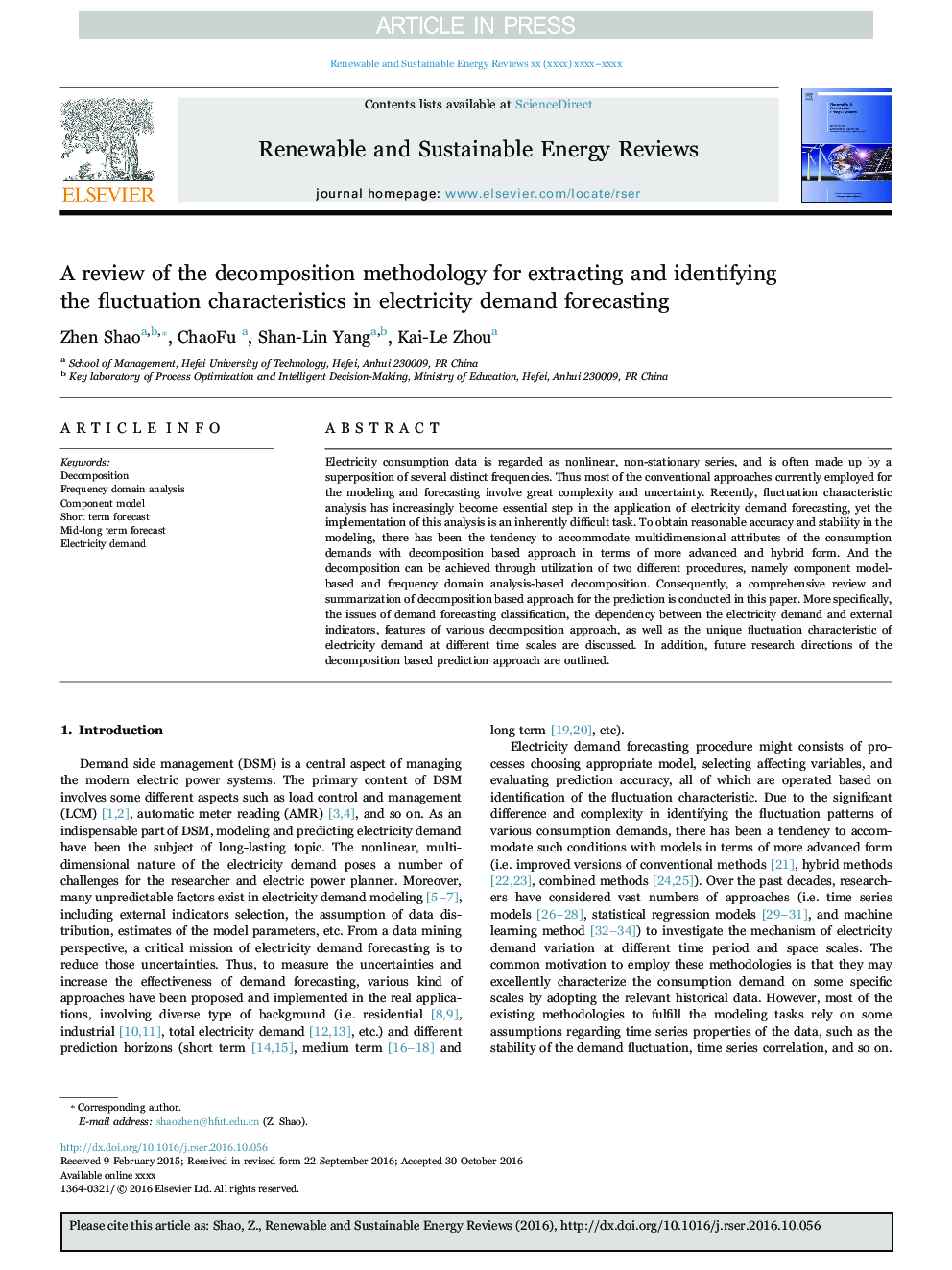| Article ID | Journal | Published Year | Pages | File Type |
|---|---|---|---|---|
| 5482826 | Renewable and Sustainable Energy Reviews | 2017 | 14 Pages |
Abstract
Electricity consumption data is regarded as nonlinear, non-stationary series, and is often made up by a superposition of several distinct frequencies. Thus most of the conventional approaches currently employed for the modeling and forecasting involve great complexity and uncertainty. Recently, fluctuation characteristic analysis has increasingly become essential step in the application of electricity demand forecasting, yet the implementation of this analysis is an inherently difficult task. To obtain reasonable accuracy and stability in the modeling, there has been the tendency to accommodate multidimensional attributes of the consumption demands with decomposition based approach in terms of more advanced and hybrid form. And the decomposition can be achieved through utilization of two different procedures, namely component model-based and frequency domain analysis-based decomposition. Consequently, a comprehensive review and summarization of decomposition based approach for the prediction is conducted in this paper. More specifically, the issues of demand forecasting classification, the dependency between the electricity demand and external indicators, features of various decomposition approach, as well as the unique fluctuation characteristic of electricity demand at different time scales are discussed. In addition, future research directions of the decomposition based prediction approach are outlined.
Related Topics
Physical Sciences and Engineering
Energy
Renewable Energy, Sustainability and the Environment
Authors
Zhen Shao, Chao Fu, Shan-Lin Yang, Kai-Le Zhou,
